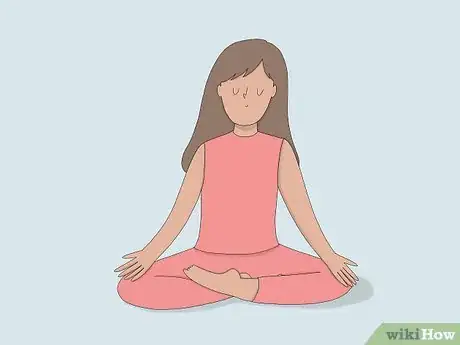This article was co-authored by Sarah Schewitz, PsyD and by wikiHow staff writer, Hannah Madden. Sarah Schewitz, Psy.D. is a licensed clinical psychologist by the California Board of Psychology with over 10 years of experience. She received her Psy.D. from the Florida Institute of Technology in 2011. She is the founder of Couples Learn, an online psychology practice helping couples and individuals improve and change their patterns in love and relationships.
There are 12 references cited in this article, which can be found at the bottom of the page.
wikiHow marks an article as reader-approved once it receives enough positive feedback. This article has 27 testimonials from our readers, earning it our reader-approved status.
This article has been viewed 1,412,998 times.
Emotions play a crucial role in our lives. Being in tune with your emotions is a great thing, and it can lead to deeper connections and more awareness overall. However, when your emotions control you, they can seriously affect your ability to perform and to think clearly in crucial situations. You can’t get rid of your emotions completely, but you can keep emotions from taking over your life.
Steps
Expert Q&A
-
QuestionIs it good to be emotionless?
 Sarah Schewitz, PsyDSarah Schewitz, Psy.D. is a licensed clinical psychologist by the California Board of Psychology with over 10 years of experience. She received her Psy.D. from the Florida Institute of Technology in 2011. She is the founder of Couples Learn, an online psychology practice helping couples and individuals improve and change their patterns in love and relationships.
Sarah Schewitz, PsyDSarah Schewitz, Psy.D. is a licensed clinical psychologist by the California Board of Psychology with over 10 years of experience. She received her Psy.D. from the Florida Institute of Technology in 2011. She is the founder of Couples Learn, an online psychology practice helping couples and individuals improve and change their patterns in love and relationships.
Licensed Psychologist No, our emotions contain important information. They're a way to process what you're experiencing and it's your body's way of telling you how it feels. With that said, it's true that you don't want your emotions to overwhelm you to the point that you lose control.
No, our emotions contain important information. They're a way to process what you're experiencing and it's your body's way of telling you how it feels. With that said, it's true that you don't want your emotions to overwhelm you to the point that you lose control.
References
- ↑ https://hbr.org/2017/12/how-to-control-your-emotions-during-a-difficult-conversation
- ↑ Sarah Schewitz, PsyD. Licensed Clinical Psychologist. Expert Interview. 15 April 2019.
- ↑ https://hbr.org/2017/12/how-to-control-your-emotions-during-a-difficult-conversation
- ↑ https://www.psychologytoday.com/us/blog/the-clarity/201701/6-tips-managing-strong-emotions-in-the-moment
- ↑ https://hbr.org/2017/12/how-to-control-your-emotions-during-a-difficult-conversation
- ↑ https://www.psychologytoday.com/us/blog/overcoming-self-sabotage/201001/you-are-the-master-your-emotions
- ↑ https://www.psychologytoday.com/us/blog/fulfillment-any-age/201502/5-ways-get-your-unwanted-emotions-under-control
- ↑ https://ideas.ted.com/try-these-two-smart-techniques-to-help-you-master-your-emotions/
- ↑ https://ideas.ted.com/try-these-two-smart-techniques-to-help-you-master-your-emotions/
- ↑ https://psychcentral.com/blog/imperfect/2019/07/how-to-take-care-of-yourself-when-you-are-busy-taking-care-of-everyone-else#Prioritizing-self-care-when-youre-busy-taking-care-of-everyone-else
- ↑ Sarah Schewitz, PsyD. Licensed Clinical Psychologist. Expert Interview. 15 April 2019.
- ↑ https://www.apa.org/monitor/2012/07-08/ce-corner
- ↑ https://www.psychologytoday.com/us/blog/your-emotional-meter/201711/it-s-never-too-late-put-yourself-first
- ↑ https://www.urmc.rochester.edu/encyclopedia/content.aspx?ContentID=4552&ContentTypeID=1
- ↑ https://www.sciencedaily.com/releases/2016/07/160722104137.htm
- ↑ https://www.helpguide.org/articles/addictions/self-medicating.htm
About This Article
If you want to be emotionless, try to think logically and focus on the facts, rather than getting swept up in emotions, which will help you remain objective. When you’re confronted with an unwanted emotion, distract yourself by getting up and doing something, like going to the gym, taking a walk, or practicing an instrument. Another good way to let go of your emotions is to write them down in a journal or in your phone’s notes app so you can become more self-aware and understand your emotions better. You can also try meditating by sitting quietly and focusing on your breath, which will help to calm you down when you get stressed. For more tips, including how to think logically through emotional experiences, read on!













































































